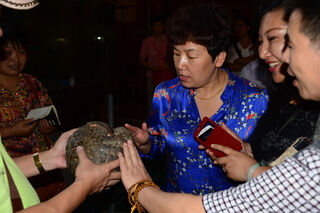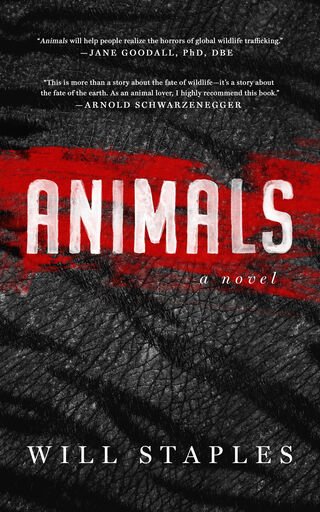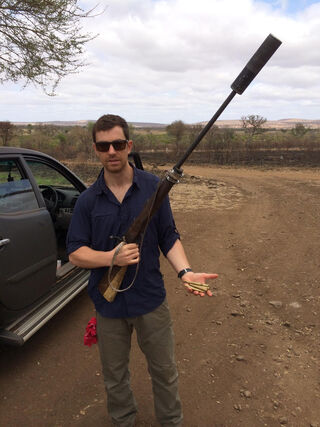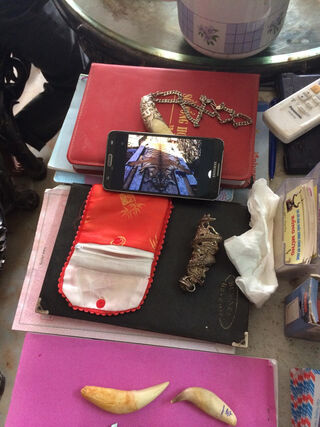Psychology
The Unimaginable Scope and Damage of Animal Trafficking
'Animals' exposes the hows and whys of the international wildlife trade.
Posted March 15, 2022 Reviewed by Ekua Hagan
Key points
- Available data show that wildlife trade is a multi-billion dollar industry driving many species to extinction.
- Around 18% of more than 31,500 terrestrial bird, mammal, amphibian, and squamate reptiles species are traded globally.
- Wildlife traffickers tend to operate largely in the open due to apathy and corrupt governments and agencies.

Global wildlife trafficking is a rampant, savage, and corrupt business. Its scope and cruelty are unfathomable, and very few people actually know about it. When they learn the facts, they are horrified. Available data show that wildlife trade is a multi-billion dollar industry that is driving many species to extinction. It's estimated that around 18% of more than 31,500 terrestrial bird, mammal, amphibian, and squamate reptiles species are traded globally.1
One way to learn about this egregious industry is to read research papers. Another is to read Will Staples' riveting novel, Animals.2,3,4 Here's what Will had to say about his landmark fact-filled book based on up-close-and-personal encounters in the dark world of global animal trafficking.
Marc Bekoff: Why did you write Animals?
WS: Wildlife trafficking is one of the largest illicit markets in the world, along with drugs, guns, and human trafficking. However, because animal crimes are not a law enforcement priority, almost nothing is known about the complex international criminal network driving the end of wildlife as we know it. I wrote Animals with the sole intention of raising awareness for this issue, and all of my proceeds from the book go directly to nonprofits dedicated to protecting wildlife. During the researching of this book, I traveled to seven countries, examining the issue from poaching/farming of endangered animals to distribution by cartels, to sale to the end-user.

MB: Who is your intended audience?
WS: While the information in the novel is grounded in hard research, I chose to write Animals as a fictional story in order to reach as broad an audience as possible. I didn’t want to write a book that only preaches to the choir. Instead, my goal was to create a bare-knuckle, character-driven, international crime thriller that would entertain and move readers and leave them with a deeper understanding of the issue, just as I try and do with my Hollywood work.
MB: What are some of the topics you weave into your book and what are some of your major messages?
WS: Animal trafficking is an extremely complex issue, and the general public has very little information about what is really going on. For example, one of the more shocking things I came across is that the syndicates are running large-scale tiger farming operations in Southeast Asia (primarily in Laos), as well as bear bile farms, etc. These are highly illegal operations and are not only horrifying for the animals but provide perfect conditions for new diseases and pandemics to emerge (like the fictional virus in my book that I developed with a leading scientist well before COVID-19 came along).

I also wanted to clear up the misconception that this is an issue of cultural differences, and whether you believe in Western medicine or Traditional Chinese Medicine (TCM). Use of endangered animals has been banned from TCM for years. The people promoting the use of tiger and rhino parts for medicine are criminal organizations selling false hope. For example, in Vietnam, I heard stories about the cartel lurking in pediatric cancer wards to encourage families to treat their kids with rhino horn powder (basically just fingernails) instead of chemo. Additionally, many of the animal parts that used to be sold for medicine, are now marketed merely as jewelry and other status symbols for Asia’s rapidly-growing middle and upper class.
I also wanted to shine a light on the fact that the major traffickers tend to operate in protected geopolitical black holes (like Special Region 4 in Myanmar, or the Golden Triangle Special Economic Zone in Laos). And they operate more or less out in the open thanks to apathy, and oftentimes corruption, on the part of the governments and agencies that could shut them down.
Most importantly, I hope readers come away from Animals with an understanding that the destruction of the natural world is something that impacts us all. It doesn’t matter if you’re a vegan or a meat-eater, a hunter, or someone who never really thinks about nature one way or the other—everything is connected. And we all have to draw a line somewhere or that line will be drawn for us.
MB: How does your book differ from others concerned with some of the same general topics?
WS: Nearly all fiction or non-fiction that touches on the issue of wildlife exploitation focuses on poaching or the sale to the end-user because those are the two areas journalists do the most research. But almost nothing is known about how animal parts go from poachers in Africa to markets in modern cities thousands of miles away. It’s as if all we knew about the drug trade is that cocaine is grown in Colombia and somehow ends up in places like New York. Animals breaks new ground by exploring the complex global web from beginning to end and exposing the powerful criminal syndicates profiting off the end of the wild.
MB: Are you hopeful that as people learn more about the extent and brutality of global wildlife trafficking they will do something to stop it?

WS: I wouldn’t have written the book if I wasn’t hopeful. However, there is only so much individual players on the ground can accomplish as long as the cartels are allowed to operate with impunity (and frequently the protection of their governments). Unlike with the drug trade, I think it is actually possible to shut down animal trafficking if we can motivate our political leaders. This is because the syndicates that traffic animals tend to also be involved in drugs, human trafficking, and gambling operations, and the animal portion of their operation is only a small piece of the pie. Yet they continue to exploit animals because there is no consequence to doing so.
If the U.S. and other major governments made it a diplomatic priority and applied pressure, I think the cartels would stop trafficking animals in order to protect their other, more lucrative, business interests. But to make our government care about the issue, first we must care about it.
References
In conversation with Will Staples.
1) For more details about the scope and horrors of wildlife trafficking click here.
2) Will Staples is a writer and producer whose most recent work includes the movie 'Without Remorse' starring Michael B. Jordan, 'The Right Stuff' television series for Disney+, and the documentary 'The Tiger Mafia,' which investigates wildlife crime syndicates. He has also written numerous hit video games, including Call of Duty: Modern Warfare 3. His debut novel, Animals, set in the world of global animal trafficking, was released in March 2021 and has been publicly endorsed by Dr. Jane Goodall and Arnold Schwarzenegger.
3) Animals will be released in paperback on March 29th, 2022
4) Jane Goodall wrote this about Animals: "Although this book is a fictitious story it is based on sound research and a real understanding of the issues discussed. Animals will help people realize the horrors of global wildlife trafficking—the cruelty, the corruption and, as we now know from COVID-19, the risk it poses to human health."




